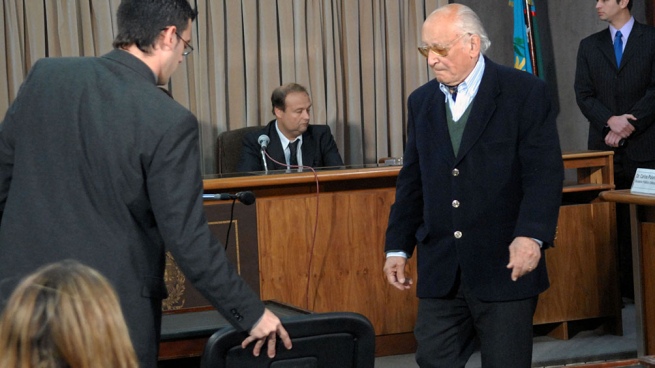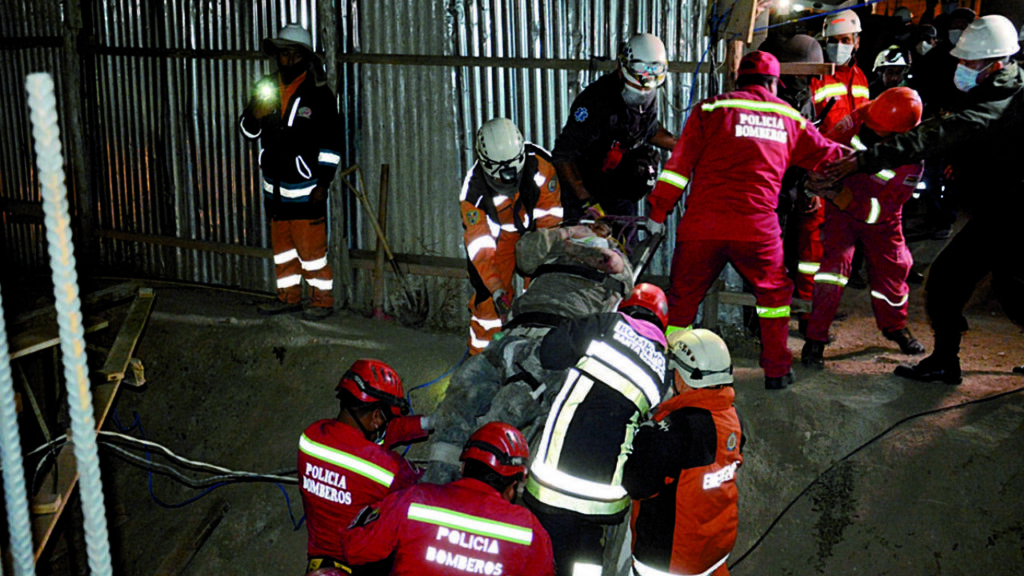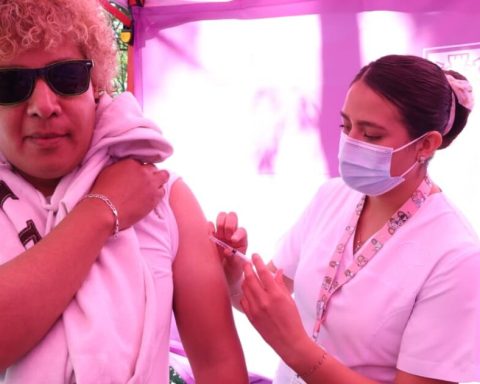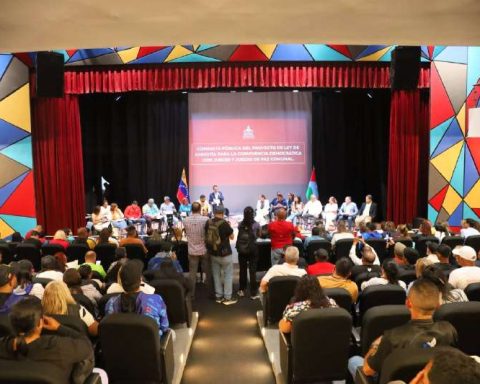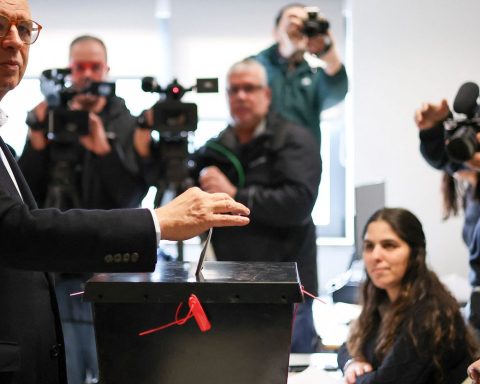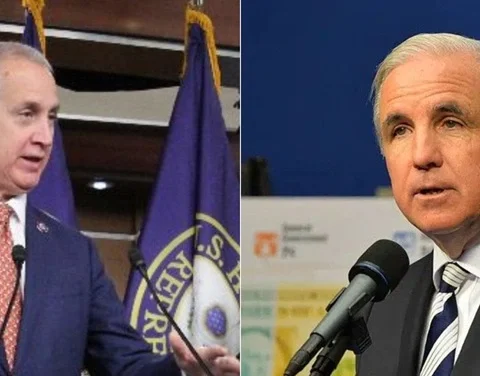A court in San Martín granted parole on Monday to the repressor Santiago Omar Riveros, by complying with a ruling by his superior, the Federal Cassation Chamber, although he will continue to be detained in another case in which He is convicted of stealing babies in the last military dictatorship.
The decision was made by the execution judge of the Federal Oral Court 1 of San Martín, Silvina Mayorga, after a ruling by the highest federal criminal court in the country that last April 7 annulled its rejection of Riveros’ parole and ordered him to dictate a new sentence, according to the resolution to which Télam had access.
The magistrate made clear in the resolution her position against granting parole to the repressor, sentenced by the Federal Oral Court 1 of San Martín to life imprisonment on August 30, 2019.
Riveros was head of the Military Institutes Command based in the Campo de Mayo military garrison during the last military dictatorship.
The judge ordered that the electronic surveillance device placed when he was granted house arrest be removed and required his peers from the Federal Oral Court 3 of the city of Buenos Aires to report “immediately” if they receive any proposal to grant him temporary releases, semi-liberty or parole by his official defense.

In September 2018, the TOF3, based in Comodoro PY 2002, sentenced Riveros to 45 years in prison – which will expire on April 9, 2058 – for stealing babies in the clandestine detention center that operated in Campo de Mayo in 1977 and 1978.
When granting parole in the case for which he was sentenced in the San Martín justice, the magistrate detailed the reasons why, as an execution judge, she had opposed it.
“I must state that on that occasion I argued that Riveros’s detention situations -he is serving preventive detention in numerous proceedings pending before this office and also severe prison sentences available to other courts- made the intended freedom impossible, since they would prevent him from complying with the compromising clauses to which parole is subject precisely,” he argued.
“I also appreciated that Riveros is serving a prison sentence for crimes against humanity and that early release could lead to a solution that, through an undue reduction of sentence, leads to the international responsibility of the Argentine State in accordance with the standards of the inter-American human rights system,” added the magistrate.
The judge recalled that when she denied the benefit to the repressor took into account “the statements of the victims who categorically opposed the early release of the convicted”

That ruling was appealed and the Second Chamber of the Federal Court of Cassation, superior of the Court of San Martín, annulled it and ordered a new resolution to be issued based on the guidelines given in his sentence.
The Cassation judges argued that “the existence of other arrests in force for the convicted person that prevent him from complying with the arbitration clauses” of the parole “does not constitute a legally foreseen obstacle to the granting” of the benefit.
“Especially when Riveros has already been sentenced to life imprisonment and, whatever the penalty that could be imposed in other cases, it will not exceed that amount,” said the Cassation ruling.
In addition, the magistrates considered “dogmatic” the statement of the execution judge linked to the “attitude” of the convicted person, based on which “it is not possible to infer that he has acquired the ability to understand and respect the law.” The Cassation judges assessed that Riveros has “accredited home roots.”
The San Martin judge remarked in her ruling that “it follows” that “the opposition of the prosecution and relatives and survivors for whom the ‘early release’ of the convicted person be a ‘risk,'” they stated in the case.
Riveros was head of the Military Institutes Command based in the Campo de Mayo military garrison during the last military dictatorship.
